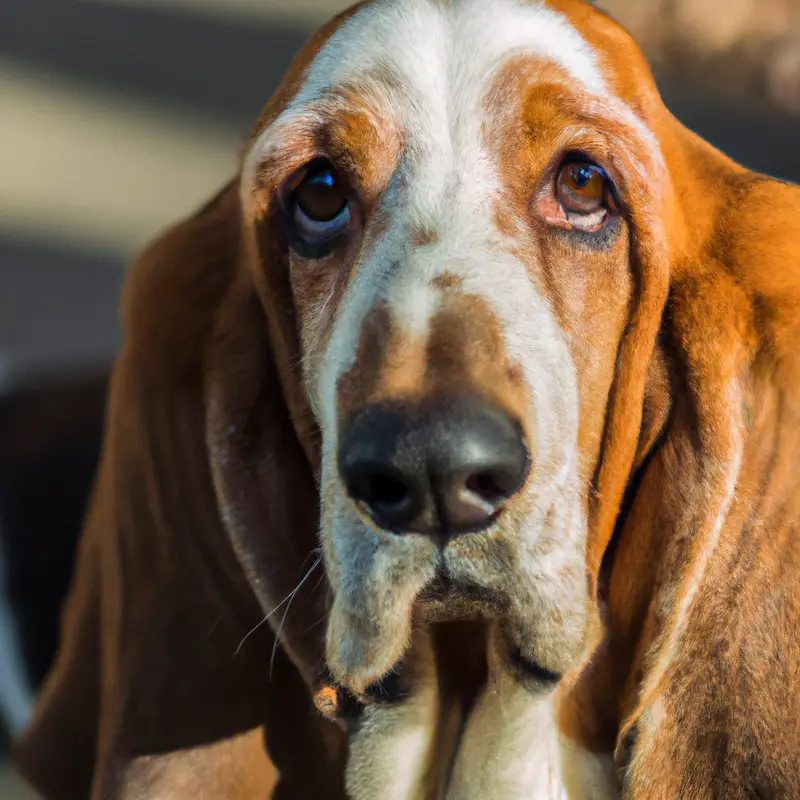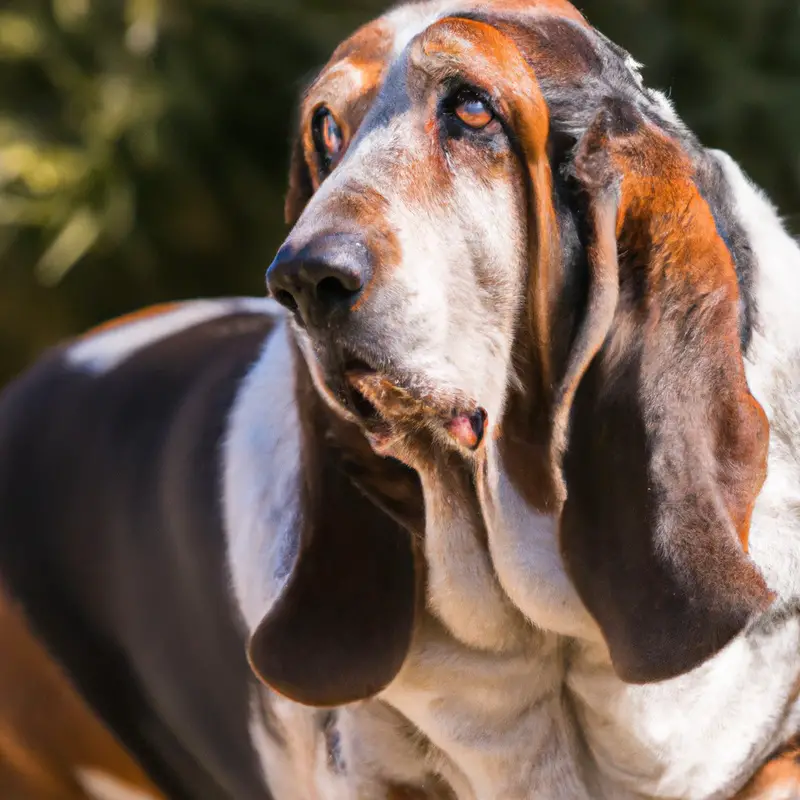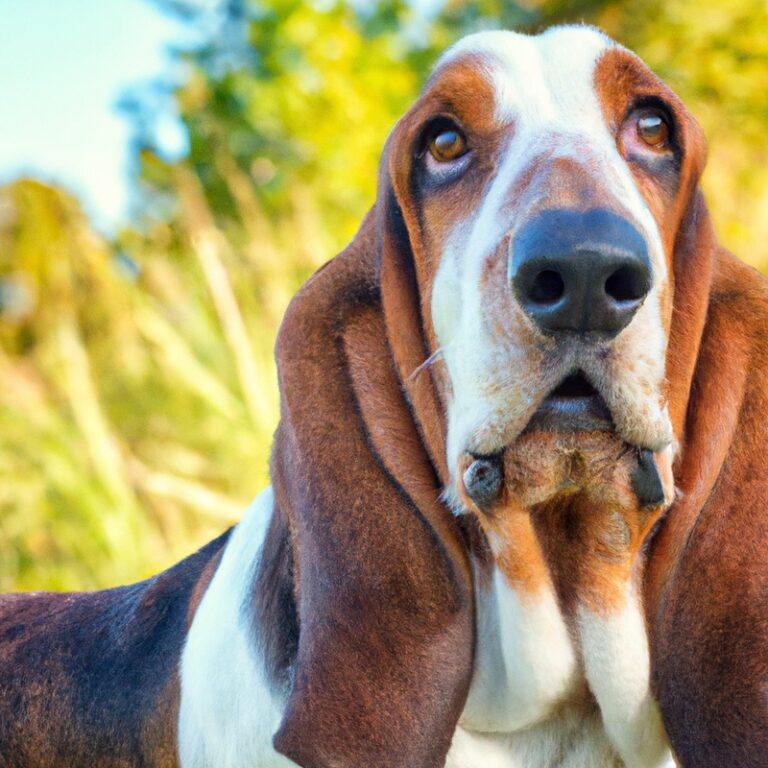Can Basset Hounds Be Left Off-Leash In a Safe Area?
Key Takeaways:
- Basset Hounds have a strong natural instinct to follow scents, making off-leash activities risky.
- Training and socialization are key factors in determining if a Basset Hound can be trusted off-leash.
- A securely fenced area with no escape routes is the safest environment for allowing a Basset Hound off-leash.
- Each Basset Hound’s behavior and temperament should be assessed individually before making the decision to let them off-leash.
Are you a proud Basset Hound owner, wondering whether your furry friend can be trusted off-leash? As an expert in canine behavior, I understand your concerns.
Basset Hounds are lovable and gentle creatures, but their temperament and instincts play a significant role in determining whether they can roam freely in a safe area.
In this article, I’ll delve into the key factors you need to consider before letting your Basset Hound off-leash, such as evaluating the safety of the area, training and socialization, their response to distractions, and their overall health and fitness. I’ll also provide you with valuable tips and alternative exercises to keep your Basset Hound happy and active.
Let’s explore this topic together and find the best solutions for your beloved companion.
| Topic | Can Basset Hounds be left off-leash in a safe area? |
| Pros | Cons |
| Basset Hounds enjoy the freedom to explore and follow their nose. | Basset Hounds have a strong hunting instinct and may chase after small animals. |
| If properly trained, Basset Hounds can be reliable and obedient off-leash. | Basset Hounds have a stubborn nature and may not always listen to commands. |
| Allows Basset Hounds to get necessary exercise and mental stimulation. | Basset Hounds may easily become distracted and wander off. |
| Can build trust and strengthen the bond between owner and Basset Hound. | Basset Hounds have a tendency to wander and may get lost if not supervised closely. |
Understanding Basset Hound Temperament
Basset Hound Behavior and Characteristics
Basset Hounds have a unique and lovable demeanor.
With their friendly nature and relaxed temperament, they make great family pets.
Bassets are known for their stubbornness, so patient training is necessary.
They are also prone to separation anxiety when left alone for long periods.
Their scent hound instincts make them prone to following interesting scents, so a secure environment is important.
Basset Hounds are generally good with children and other pets, but early socialization is important.
They have a moderate energy level and enjoy daily walks and playtime.
Overall, Basset Hounds are affectionate, loyal, and make wonderful companions.
Basset Hound’s Instincts and Wanderlust
Basset Hounds have strong instincts and a tendency to wander. They were bred as scent hounds, so their nose often leads them astray.
Their wandering nature can make it challenging to keep them off-leash in an open area.
They may be easily distracted and follow scents, potentially getting lost or injured. It’s important to be cautious and consider alternatives to off-leash exercise to ensure their safety and well-being.
Basset Hound’s Sensitivity and Attachment to Owners
Basset Hounds are known for their sensitive nature and strong attachment to their owners. They thrive on companionship and love being around their human family.
Their sensitivity means that they are attuned to their owner’s emotions and can often provide comfort and support when needed.
Basset Hounds form deep bonds with their owners and may become anxious or distressed when separated for long periods. It’s important to nurture this attachment through regular affection, attention, and quality time together.
This strong bond is what makes Basset Hounds such loyal and loving companions.

Factors to Consider Before Leaving Basset Hounds Off-Leash
Evaluating the Safety of the Area
To evaluate the safety of the area before letting your Basset Hound off-leash, there are a few important factors to consider. Look for a fully enclosed and secure space, such as a well-maintained fenced-in yard or a designated dog park.
Assess any potential hazards, such as busy roads, bodies of water, or toxic plants.
Ensure that the area is free from potential sources of danger, like aggressive dogs or wildlife. Take note of any potential escape routes or gaps in fencing that your dog could exploit.
It’s also a good idea to observe the surrounding neighborhood for any potential risks or disturbances.

Training and Socialization of the Basset Hound
Training and socialization are key for Basset Hounds.
Training helps them learn commands and basic manners, while socialization exposes them to various people, animals, and environments.
Bassets can be stubborn, so patience and positive reinforcement training techniques work best.
Early socialization helps prevent shyness or aggression towards others.
Consistency is key, so regular training sessions and exposure to new experiences are important.
Positive interactions with other dogs and people are vital to develop a well-rounded and friendly Basset Hound.
Basset Hound’s Response to Distractions
Basset Hounds have a strong sense of smell, which can make them easily distracted.
They are known for their stubbornness and independence, so their response to distractions may vary.
Some Basset Hounds may become fixated on a scent and ignore their surroundings, while others may be more easily redirected.
It is important to understand your individual Basset Hound’s behavior and train them accordingly.
Patience and consistent training can help improve their response to distractions, but it is always important to remain cautious and keep them on a leash in potentially dangerous situations.

Health and Physical Fitness of the Basset Hound
The health and physical fitness of Basset Hounds is an important consideration before allowing them off-leash. Bassets are prone to weight gain, which can lead to joint issues.
Regular exercise is crucial to maintaining their overall well-being.
Engaging in activities such as walks, playtime, and mental stimulation helps keep them in good shape. It’s also important to monitor their diet and ensure they maintain a healthy weight.
Regular veterinary check-ups and a balanced diet are key to keeping Basset Hounds healthy and fit.
Tips for Allowing Basset Hounds Off-Leash Safely
Gradual Off-Leash Training Process
Gradual off-leash training is key to ensuring the safety and obedience of your Basset Hound.
Start in a secure, fenced area and introduce your dog to being off-leash in a controlled environment.
Use positive reinforcement and rewards to encourage them to stay by your side and return to you when called.
Increase the distance and duration of off-leash time as your dog becomes more reliable.
Always supervise them and be prepared to use the leash if needed.
Consistency and patience are essential in this training process.
Consistent Recall Training
Consistent recall training is key when considering allowing your Basset Hound off-leash.
Start in a safe, enclosed area and practice calling your dog back to you using a distinct command.
Use positive reinforcement, like treats or praise, when they come to you.
Gradually increase the distance and level of distractions, reinforcing the recall command every time.
Consistency is key in reinforcing this behavior, so practice regularly.
With time and patience, your Basset Hound will become reliable off-leash.
Using a Long Leash or Dragline
Using a long leash or dragline can be a helpful tool when allowing your Basset Hound off-leash. It gives them the freedom to explore while still maintaining control.
Make sure the leash is long enough for them to move comfortably but not so long that it becomes a tripping hazard.
Attach the leash to a harness rather than a collar to minimize strain on their neck. Regularly check the leash for signs of wear and tear to ensure it remains strong and secure.
Ensuring Proper Identification and Microchipping
Ensuring that your Basset Hound has proper identification and is microchipped is essential for their safety.
In case they ever wander off or get lost, having identification tags with your contact information will greatly increase the chances of a happy reunion.
Additionally, microchipping your Basset Hound provides an extra layer of protection, as it allows veterinarians or animal shelters to easily scan for their unique identification number.
Just make sure to keep your contact details up to date with the microchip registry.
Alternatives to Off-Leash Exercise for Basset Hounds
Securely Fenced Areas for Playtime
Securely fenced areas are a great option for basset hounds to have playtime.
These areas provide a safe and contained space where your basset hound can freely roam, explore, and burn off their energy.
A securely fenced yard or dog park allows them to satisfy their natural instincts without the risk of wandering off or getting into trouble.
Make sure the fencing is tall enough and doesn’t have any gaps for your basset hound to squeeze through.
Regularly inspect the fencing for any potential weak spots or damage.
Supervise your basset hound during playtime to ensure their safety.
Structured Walks and Regular Exercise Routines
Structured walks and regular exercise routines are essential for the well-being of Basset Hounds. Going on structured walks helps satisfy their instinctual need to explore and sniff, while regular exercise keeps them physically fit and mentally stimulated.
During walks, it’s important to keep them on a leash to ensure their safety.
Remember to set a steady pace and allow for sniffing breaks. In addition to walks, incorporating other forms of exercise such as interactive play sessions or swimming can provide additional mental and physical stimulation for your Basset Hound.
Engaging Indoor Activities and Puzzle Toys
Engaging Indoor Activities and Puzzle Toys for Basset Hounds: Basset Hounds are intelligent and curious dogs that thrive on mental stimulation. To keep them entertained indoors, there are various engaging activities and puzzle toys that can provide mental challenges and prevent boredom.
- Puzzle toys: These toys require the dog to solve a puzzle or manipulate parts to access treats or hidden compartments. They stimulate problem-solving skills and keep the dog occupied.
- Hide and seek: Hide treats or toys in different areas of the house and encourage your Basset Hound to find them. This engages their olfactory senses and satisfies their natural hunting instincts.
- Training sessions: Basset Hounds enjoy learning new tricks and commands. Engage them in short training sessions where they can learn and practice obedience skills while keeping their minds active.
- Interactive toys: Look for toys that emit sounds or movements when played with. These toys can hold your Basset Hound’s interest and provide mental stimulation.
- Treat-dispensing toys: Use toys that dispense treats as your dog interacts with them. This rewards their efforts and encourages problem-solving while giving them a tasty reward.
Remember to supervise your Basset Hound during these activities and provide them with safe, durable toys to avoid any choking hazards. Regularly rotating toys and varying activities will keep your Basset Hound entertained and mentally stimulated indoors.
Final Verdict
Based on my expertise as a dog trainer, I would not recommend leaving Basset Hounds off-leash in any area, regardless of how safe it may seem.
Their natural instincts, sensitive nature, and propensity to wander make them unreliable off-leash companions.
However, if you decide to pursue off-leash activities, it is crucial to evaluate the safety of the area, invest in proper training, address distractions, and assess the dog’s health and fitness.
Implementing a gradual off-leash training process, consistent recall training, using a long leash, and ensuring proper identification can significantly reduce the risks.
Alternatively, securely fenced areas, structured walks, regular exercise routines, and engaging indoor activities are safer alternatives for providing exercise and stimulation for your Basset Hound.
Remember, prioritizing their safety should always be the utmost concern.







